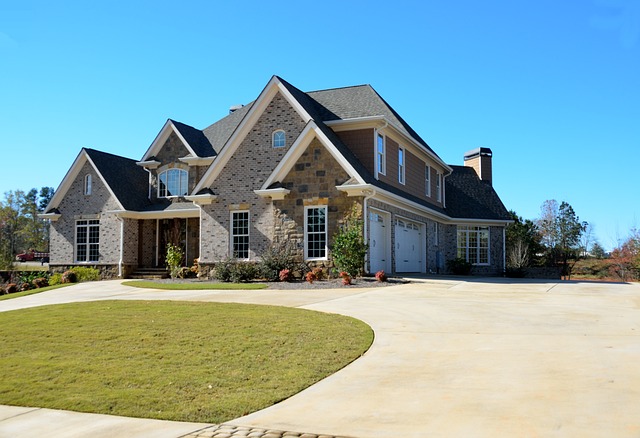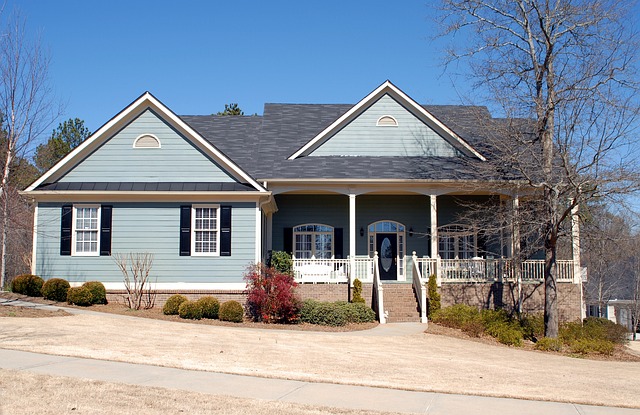In Singapore, the Additional Buyer's Stamp Duty (ABSD) is a key regulatory measure for property ownership, designed to ensure market stability and discourage excessive property speculation. As of the latest updates, Singaporean individuals purchasing their second residential property face a 7% ABSD, while permanent residents are subject to a 10% rate, and foreigners must pay 15%. These rates increase for additional properties. The ABSD framework is detailed and differentiates between flat and landed properties, with specific rates for each and considers the time elapsed from the acquisition of previous properties. Accurate calculation of these duties is essential to avoid penalties. Prospective buyers must fully understand these regulations under Absd Singapore 2nd Property guidelines, as the ABSD significantly impacts the cost and viability of purchasing a second home. Additionally, individuals should consider the property's market value versus its purchase price when determining the exact ABSD due. It is also crucial to stay informed about government policies and economic indicators that can affect property values and financing options. Legal guidance is critical for compliance with IRAS guidelines and for managing all aspects of property titles, mortgages, and existing loans or leases. Prudent planning and a thorough understanding of the ABSD rules in Singapore are essential for responsible investment and successful navigation of the property market.
Navigating the property market in Singapore as a second-property owner comes with its unique set of considerations, chief among them is understanding the Additional Buyer’s Stamp Duty (ABSD) framework. This comprehensive guide delves into the intricacies of ABSD Singapore 2nd Property, offering expert advice on eligibility, rates, strategic timing, and financing options for your second home purchase. From comprehending the ABSD rates to aligning your acquisition with financial planning, this article is a must-read for prospective buyers. It also covers essential legal considerations to ensure compliance with Singapore’s stringent property regulations. With insights tailored for the astute investor, you’ll be well-equipped to make informed decisions in Singapore’s dynamic real estate landscape.
- Understanding the ABSD Framework for Second Properties in Singapore
- Assessing Eligibility and Calculating Additional Buyer's Stamp Duty (ABSD) Rates
- Strategic Planning: Timing Your Second Property Acquisition in Singapore
- Navigating the Financing Landscape for Your Second Home Purchase in Singapore
- Legal Considerations and Compliance with ABSD Regulations for Second Properties
Understanding the ABSD Framework for Second Properties in Singapore
In Singapore, the Additional Buyer’s Stamp Duty (ABSD) framework plays a pivotal role in regulating property ownership and investment. For individuals purchasing a second residential property within Singapore, the ABSD rates are structured to discourage excessive speculation and ensure a stable and sustainable property market. As of the latest update, the ABSD rate for Singaporeans buying a second property is set at 7%. This rate escalates significantly for subsequent properties, with foreigners subject to an even higher duty, reflecting the government’s stance on property investment within the country’s borders. It’s crucial for prospective buyers to grasp the nuances of this framework as it directly impacts the affordability and feasibility of acquiring a second residential property in Singapore under the Absd Singapore 2nd Property guidelines.
Navigating the ABSD requirements involves careful planning and a thorough understanding of one’s eligibility status. For instance, the duty is tiered according to the type of property, whether it’s a flat or landed property, with varying rates applicable for each category. Additionally, the timeline from the purchase date of the previous property to the acquisition of the second property can influence the ABSD payable. Prospective buyers must calculate their obligations accurately, as failure to comply with these duties could lead to penalties and additional costs. The Singaporean government’s stance on property ownership is clear: it aims to ensure that property investments are made with due consideration and within a responsible framework, which the ABSD system underlines.
Assessing Eligibility and Calculating Additional Buyer's Stamp Duty (ABSD) Rates
When considering the acquisition of a second property in Singapore, understanding the eligibility criteria and the associated financial implications is paramount. Prospective buyers must assess their eligibility under the Additional Buyer’s Stamp Duty (ABSD) framework, as stipulated by the Inland Revenue Authority of Singapore (IRAS). The ABSD for individuals who are acquiring a second residential property in Singapore varies depending on the type of property and the entity of the buyer. As of the knowledge cutoff date, Singaporeans purchasing a second residential property are subject to an ABSD rate of 7%. For permanent residents, the rate is set at 10%, while foreigners must pay 15% regardless of the number of properties they own. It’s important to note the ABSD rates can change, so buyers should refer to the latest guidelines from IRAS before finalizing their purchase.
Moreover, the calculation of ABSD is straightforward but must be done accurately to avoid any unforeseen financial burdens. The duty is calculated based on the purchase price or market value of the property, whichever is higher. For individuals purchasing a second residential property, the applicable rate should be applied to this amount. For example, if a Singaporean citizen buys a second property valued at SGD 1 million, they would incur an ABSD of SGD 70,000 (7% of SGD 1 million). This additional cost should be factored into the overall budgeting for the purchase to ensure financial readiness. It’s crucial to consult with real estate professionals and legal advisors who specialize in property transactions in Singapore to navigate these regulations effectively and comply with all ABSD requirements associated with Absd Singapore 2nd Property acquisitions.
Strategic Planning: Timing Your Second Property Acquisition in Singapore
When considering the acquisition of a second property in Singapore, strategic planning is paramount to navigate the market effectively. The Absd (Accounting and Corporate Regulatory Authority of Singapore) regulations on property ownership require careful consideration. Prospective buyers should assess their current financial standing, future goals, and the potential return on investment before proceeding. Timing is a critical factor; understanding the property cycle, including market peaks and troughs, can lead to more informed decision-making. It’s advisable to monitor economic indicators such as interest rates, inflation, and employment trends, as these can influence property values and rental demand. Additionally, staying abreast of government policies, particularly those related to property taxes and loan-to-value (LTV) ratios, is essential for compliance and optimizing financial arrangements. By meticulously planning and aligning the acquisition of an Absd Singapore 2nd Property with broader economic conditions and personal financial objectives, investors can position themselves for long-term success in the dynamic Singapore property market.
Navigating the Financing Landscape for Your Second Home Purchase in Singapore
When considering the acquisition of a second property in Singapore, understanding the financing landscape is paramount for a sound investment decision. Prospective buyers must be aware that the Absolution Board of Singapore (ABS) plays a pivotal role in the real estate financing sector. ABS provides a platform where individuals can apply for a loan against their existing residential property to finance their second home purchase. This is a testament to the trust and confidence investors have in leveraging property equity as collateral.
The loan-to-value (LTV) ratio is a key factor that potential buyers must consider when navigating this financial terrain. For a second property, the LTV is typically lower than for a first home. As of the current regulations, buyers can expect to finance up to 60% to 75% of the value of their second property through a loan from ABS, depending on various criteria such as the buyer’s creditworthiness and the equity in their existing properties. It is crucial for prospective buyers to engage with financial advisors who are well-versed in the nuances of Singapore’s property financing rules. They can provide tailored advice on structuring your finances, maximizing loan approval chances, and optimizing your investment strategy within the Absd Singapore framework. This meticulous planning will ensure that your second home acquisition is not only compliant with financial regulations but also aligns with your long-term financial goals.
Legal Considerations and Compliance with ABSD Regulations for Second Properties
When considering the acquisition of a second property in Singapore, understanding the legal framework and adhering to the Additional Buyer’s Stamp Duty (ABSD) regulations is paramount. The ABSD for second properties serves as a measure to curb speculative buying and ensure a stable property market. For individuals who are not first-time buyers, purchasing residential property in Singapore attracts this duty, which varies according to the type of property and the number of subsidiary-linked companies involved. As of the knowledge cutoff date, the ABSD rate for individuals purchasing a second residential property is 12 percent, with rates increasing up to 15 percent for entities. It is crucial to consult with legal experts to navigate these regulations accurately, as non-compliance can result in significant penalties and repercussions.
The process of compliance with ABSD regulations involves a thorough understanding of the Singaporean legal system, particularly the Inland Revenue Authority of Singapore (IRAS), which administers the duty. The IRAS provides detailed guidelines on the applicable rates, eligibility criteria, and exemptions. Beyond the financial implications, there are other legal considerations such as the handling of property titles, mortgages, and the potential impact on existing loans or leases. Prospective buyers must also be aware of the timelines for payment of ABSD to avoid delays in transaction completion. A meticulous approach to due diligence and a comprehensive understanding of these regulations are essential steps for those looking to invest in a second property within Singapore, ensuring compliance with AbsD Singapore 2nd Property rules.
When considering the acquisition of a second property in Singapore, it is imperative to thoroughly understand theABSD framework as it significantly impacts your financial planning and investment strategy. The Additional Buyer’s Stamp Duty (ABSD) imposed by the Singaporean government serves as a regulatory measure to curb speculative behavior in the property market. By assessing one’s eligibility and calculating the appropriate ABSD rates, prospective buyers can navigate this framework with confidence and clarity. Strategic timing of your second property purchase is also crucial, as market dynamics can influence both the value and the potential growth of your investment. The financial landscape in Singapore offers diverse options for securing the necessary loans or financing for your second home, yet it requires careful consideration to optimize terms favorable to your situation. Lastly, adhering to all legal requirements and staying compliant with ABSD regulations is non-negotiable for second property owners in Singapore. By heeding the expert advice provided in this article on ABSD Singapore 2nd Property, you can make informed decisions that align with your long-term investment goals.



